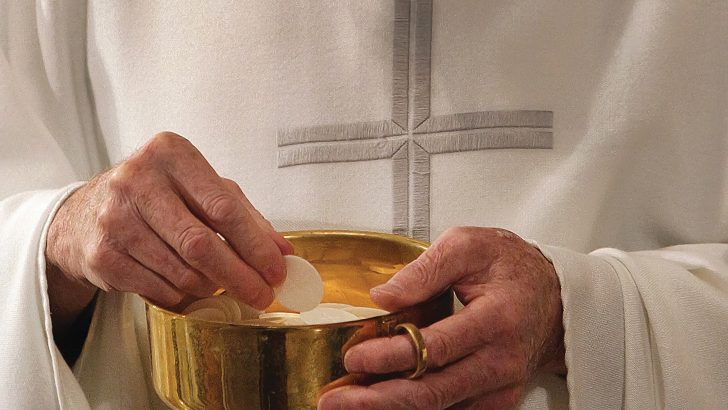A few weeks ago, I wrote an article here exploring the role of Co-PPs. Some readers questioned its relevance; perhaps they still had a resident priest in their parish but weren’t going to question him on his role or title. Or perhaps they found the new arrangement of being served by a team of priests satisfactory, even an improvement, with the choice of celebrant it provided.
For priests it was a different matter: the suffix after our name determines what’s expected of us. Any confusion on what a Co-PP is, or what the role entails, disturbs priests.
One priest put it succinctly:
“By chance I saw your column regarding Co-PPs in last week’s The Irish Catholic. My heart rejoiced that someone could put into print my experience of the co-PP status/non-status and know that I am not alone.
“I’m a diocesan priest, ordained over 30 years, and I’ve never felt more ignored as a person in the recent years of being a Co-PP. I have felt that others shared the experience but couldn’t find the voice to speak out. I feel your article has given me a way of presenting my feelings and fears of what has developed and for that, thank you.”
A new Church will have to be born, one not centred on the ordained but on the lay faithful”
Sometimes it seems as if synodality is a concern for the bishop and lay people of the diocese, but priests are left out of the equation, as this correspondent certainly felt. We priests can be awkward and questioning, sometimes hard to convince — but we are the ones on the ground, hacking away at the coalface, trying to play our part. Many of us remain unclear on how the Co-PP fits into the general scheme of things, as those who contacted me made clear.
Whatever the role assigned or whatever is expected, we Irish priests are a dying breed. A new Church will have to be born, one not centred on the ordained but on the lay faithful. Surely a Church with a tradition as rich as ours can imaginatively put together a model of parish life where the baptised play a central role, aided by a priest assistant. The new parish will celebrate Mass less often, but lay presiders and catechists can surely keep the life of faith alive with imaginative liturgies and good pastoral leadership, in which the participation of all in the life of faith is constantly encouraged. This will of course require theological and pastoral formation of these lay leaders; formation should be underway now.
Future
Instead of this, however, much tinkering round the edges seems to be the order of the day, talks of closing churches or merging parishes just because a priest is no longer available for each. The lay faithful who have served locally and paid the bills over the years are surely the ones who must have the last word on which are retained and which lost — and their role in keeping communities alive is surely key to the future of the Church in Ireland, if it is to have one.
***
A school community gathered in their church for the opening of school year Mass. Everyone participated, but afterwards one of the Ministers of the Eucharist reported a problem. As she gave Communion to one child, her invitation to faith “The Body of Christ” brought the reply: “What am I supposed to do with that?”. The child following in the Communion line whispered “Eat it!”. The question had been asked by one who received First Communion last spring but apparently hadn’t been to Mass since. It’s probably the best way of illustrating that First Communion without parental ‘buy-in’ makes little sense.
***
Priests who minister in dioceses where parishes are served by a team of priests are fortunate. The alternative is worse: each PP is assigned a neighbouring parish when it becomes vacant. A priest’s workload is thus doubled, and days off or holidays probably disappear. At least when a team of priests work together, cover for holidays is understood as essential and is arranged. Days off are also ensured for each, with a neighbour available to cover a funeral etc as necessary. What the PPs who end up with two parishes (or more) do, I can only imagine: retire, I presume!



